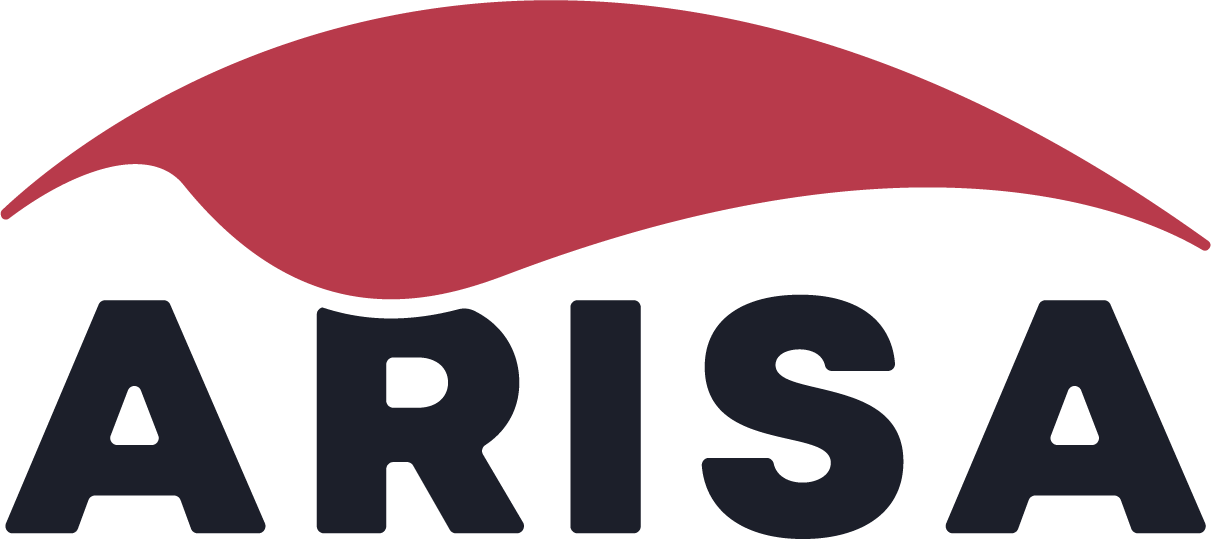On 14 September 2022, the Together for Decent Leather programme, in which Arisa participates, published a report that reveals severe labour rights risks in Bangladesh’s leather industry. Identified problems include low wages, health hazards due to unsafe working conditions, heavy pollution, insecure jobs, and forced overtime. One of the organisations that conducted the survey for the study is Bangladesh Labour Foundation (BLF). Arisa talked to Ashraf Uddin Mukut, executive director of BLF, to discuss his experience in the Bangladesh leather and garment industry.
Engaging with workers is key
BLF is a non-governmental organisation that represents the interests of working people in Bangladesh. To do that, BLF-staff engages directly with workers at the root level. Ashraf explains: ‘ To be able to work in this sector, you must be able to interact with the workers, employees and everyone involved in this industry. You cannot work in this sector if you do not feel it in your heart. It requires intrinsic motivation. After office hours, I must go into the field to talk with the workers because they work during the daytime too. ‘
‘Most people who work at BLF have a union background, so they have a very good connection to the people and parties involved in this work; from workers to employers and further up, countrywide. Because of these connections, we have a healthy relationship with the different stakeholders and can collaborate the way we do.’
There is very little transparency in the Bangladesh leather sector
Together for Decent Leather programme in Bangladesh
BLF and Arisa collaborate in the Together for Decent Leather programme. A: ‘The programme has two sides: the one in Europe and the one in the production countries. In Bangladesh, we bargain with the government, employers, and other local stakeholders. However, in the Bangladesh leather sector, there is very little transparency. We need to get information about buyers, but it is practically impossible to get our hands on it. The Together for Decent Leather programme helps us to obtain this type of information to move our efforts forward and create more transparency. Together, we aim to develop a sustainable and compliant leather sector.
‘The programme also provides a global platform. Through the programme, multiple organisations spread our joint reports. They show the world the reality of the Bangladesh leather industry. This information can help force producers to comply with workers’ rights. When the condition in the industry improves, workers benefit from it.’
After the Rana Plaza incident: change within the industry starts with buyers’ demands
In April 2013, the Rana Plaza building in Dhaka, Bangladesh, collapsed, killing 1132 people and (permanently) injuring more than 2500 others. The tragedy caused outrage worldwide about the safety and labour conditions for workers in Bangladesh. Ashraf says the situation in the leather industry in Bangladesh has seen some changes after this event, because of new policies of international organisations and efforts of development organisations and other allies. ‘There is more focus on the building and fire safety in factories by buyers, which limited casualties. But organising issues remain.’
Workers’ rights were and are still ignored
‘Employers and buyers always think first, or only, about their business. Most of the time, they do not think about their workers. So, workers’ rights were and are still ignored, wages were and are lacking, and workers are still under huge pressure due to targets. Problems in the leather and garment sector remain huge, and a lot of work still needs to be done.’
According to Ashraf, the government and other institutions in Bangladesh function in a reactive manner instead of a proactive one. ‘Because I lived and worked outside of the country, I very clearly understand what is happening in this country. In Bangladesh, nothing happens until the buyers ask for change. Change and improvement are initiated on the buyers’ demand, not because we actively search for it ourselves. If the buyers do not engage in the garment facilities, these facilities will stay the way they are.’
Workers who organise and ask about their rights put themselves at risk
Ashraf says that Bangladesh has many laws to support workers but that their implementation is very poor. ‘In Bangladesh, the lack of proper implementation of laws leaves workers at the mercy of their initiative to demand change. But with a very inactive and small trade union movement in the country and little job safety, this comes with a risk. ‘In the leather sector, there is only one trade union, which has a poor organising capacity. When a worker attempts to organise a union in a factory or talk about labour rights, they somehow lose their job. This is a big problem.’
We create awareness about workers’ rights and show how to organise and grow capacity
‘The Bangladesh government does not restrict the right of association, collective bargaining, and trade unions. However, they are also not motivated. To change this, BLF collaborates closely with the ILO, EU commissions, and the UN to put pressure on the Bangladesh government and companies and lobby and advocate for workers’ rights.’
‘On the workers’ level, we try to be a catalyst for the trade union movement in Bangladesh: we create awareness about workers’ rights and show how to organise and grow capacity. To do this, we provide training to workers in the informal sector. These efforts resulted in the establishment of a strong trade union.’
Problems in the Bangladesh garment- and leather industry
Workers in the Bangladesh leather and garment industry face multiple issues. For example, processing leather requires the use of many hazardous chemicals. ‘About 150 different types’, according to Ashraf. ‘Especially chromium is a health hazard for the workers. So, when we try to improve working conditions and involve buyers and suppliers in the solutions, we are not only talking about workers’ rights but also about their health and livelihood.’
‘Right now, the garment industry is suffering from a shortage of workers.’ The large workforce that started in this industry in the 70s cannot keep up with the hard work. The same goes for the generations that came after them. ‘Workers in this industry perform hard work, six days a week, for a minimum of 10 to 12 hours a day. On top of these excessive working hours, workers need to make the targets set by their supervisors. As a result, workers can, for example, not go to the washroom. It takes up too much time. Working like this is not healthy and not sustainable. So, after some years performing this work, people start falling out and cannot continue their work.’
Governments and businesses don’t go to production sites to see what real problems workers are facing
Ashraf believes a top-down approach does not work to tackle the growing problems in the garment and leather industry. ‘Governments and businesses don’t go to production sites to see what real problems workers are facing.’ Motivating stakeholders and government officials to improve the situation for workers is one of the main challenges BLF faces, according to Ashraf. ‘We need to motivate and make people understand the issues at play in the sector. Day after day, week after week, month after month. A problem for achieving sustainable solutions is that government officials in Bangladesh change jobs very often, so every time again, we have to make a new person understand the sector and the issues and motivate them. ‘
BLF’s persistence and genuine motivation pay off in the garment and leather industry
In the informal garment sector, BLF takes steps to eliminate child labour. A: ‘In the area we work, there are over 30,000 children involved in child labour; a huge number. We have made an action plan with the government to eliminate all forms of child labour and rehabilitate the children to their hometowns and homes. The action plan is a big success from BLF’s perspective. We also work closely with the government to ratify the ILO convention 138 on the minimum age to work. The government really wants to eliminate child labour, which is the reason why they ratify this ILO convention.’
International organisations and international companies can help to create more supply chain transparency
Furthermore, BLF is involved in a two-year programme to ensure social compliance for leather workers. In the Bangladesh leather sector, workers do not have contracts, set working hours, paid leave or minimum wages. ‘We try to ensure these types of compliance issues with their employers and the government. Employers’ associations, civil society and workers’ associations are also involved in the initiative. ‘Arguably, it is the first time in the history of Bangladesh that a civil society organisation has motivated a governmental body to make an action plan for a specific industry like the leather industry. Creating this action plan is a key development and important step for BLF and all actors involved.’
‘We hope that, in the next few years, we can make more positive changes for workers in these sectors. Collaboration with organisations in buying countries helps us to put pressure on buyers, suppliers and governments to make this happen. When organisations like Arisa use their expertise and network in the buying countries to advocate for workers’ rights, its effects will trickle through to the producing countries, like Bangladesh. International organisations and international companies can help to create more supply chain transparency. International companies also have the leverage to force producers to comply with workers’ rights and address the issues at play. This benefits workers and helps to create a healthy working environment. And, at the bottom of the line, it will improve workers’ livelihood.’
About Ashraf Uddin Mukut- Executive Director of the Bangladesh Labour Foundation (BLF)

Ashraf has been working with Bangladesh Labour Foundation for 14 years now. But he did not always set out to work for an organisation like this. ‘I have a different background. I started working with workers and providing training for organisations when I was very young. I initially got involved in training and conversation programmes as an interpreter; there were not many people who were involved in translating Bangla from English at that time. After some time, I went to the UK to study and eventually completed an MBA in marketing. After my return to Bangladesh, BLF approached me to work for them. I started working for the organisation and was passionate about working with workers, workers’ organisations and marginalised people. I am as passionate for the work now as on the day I started.’
Lees hier ons interview met Rukmini, voorzitter en oprichter van de Garment Labour Union (India): ”Bedrijven, overheden en consumenten hebben verantwoordelijkheid tegenover kledingarbeiders”.




